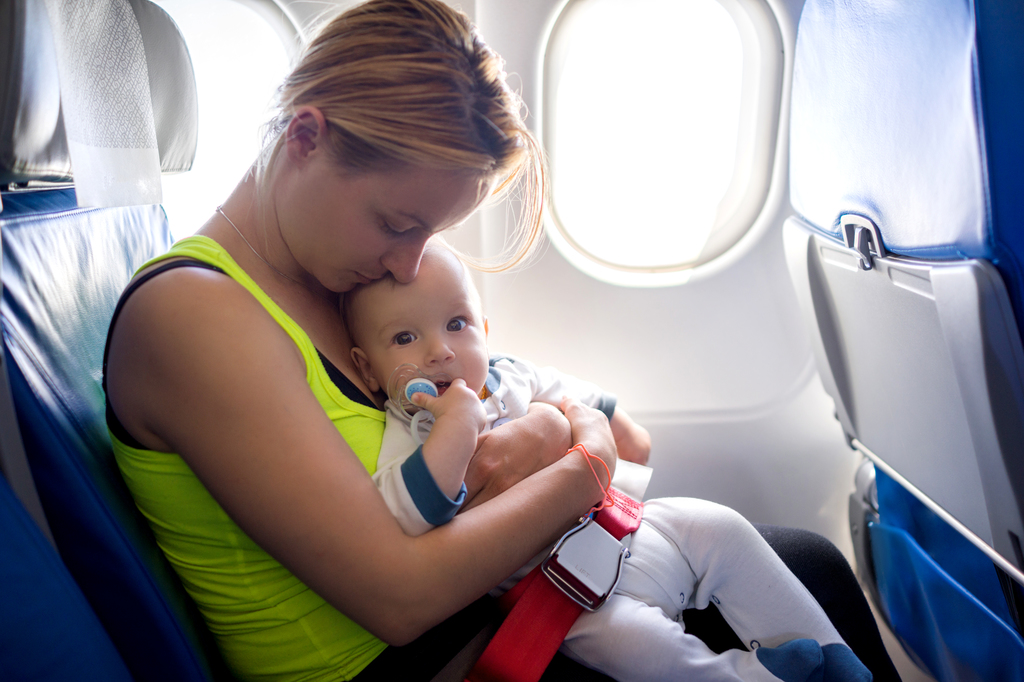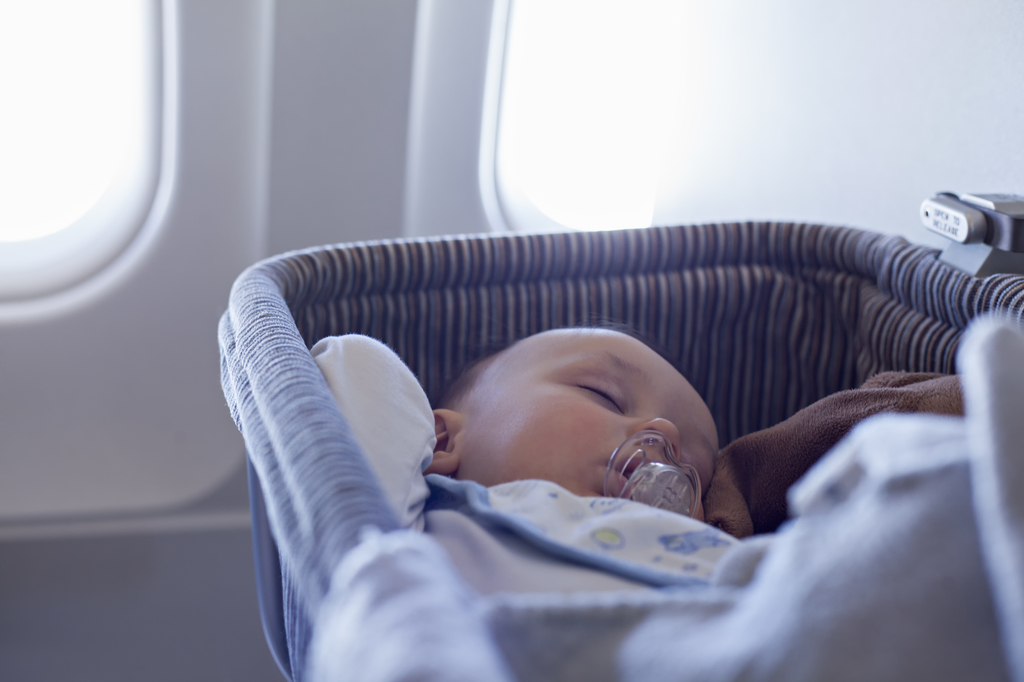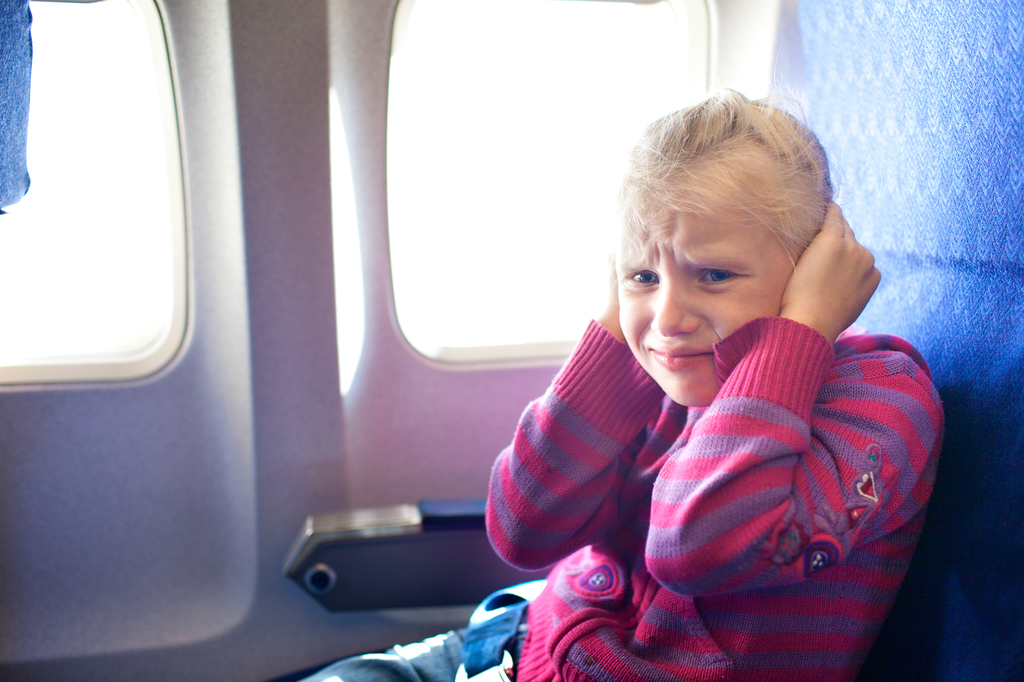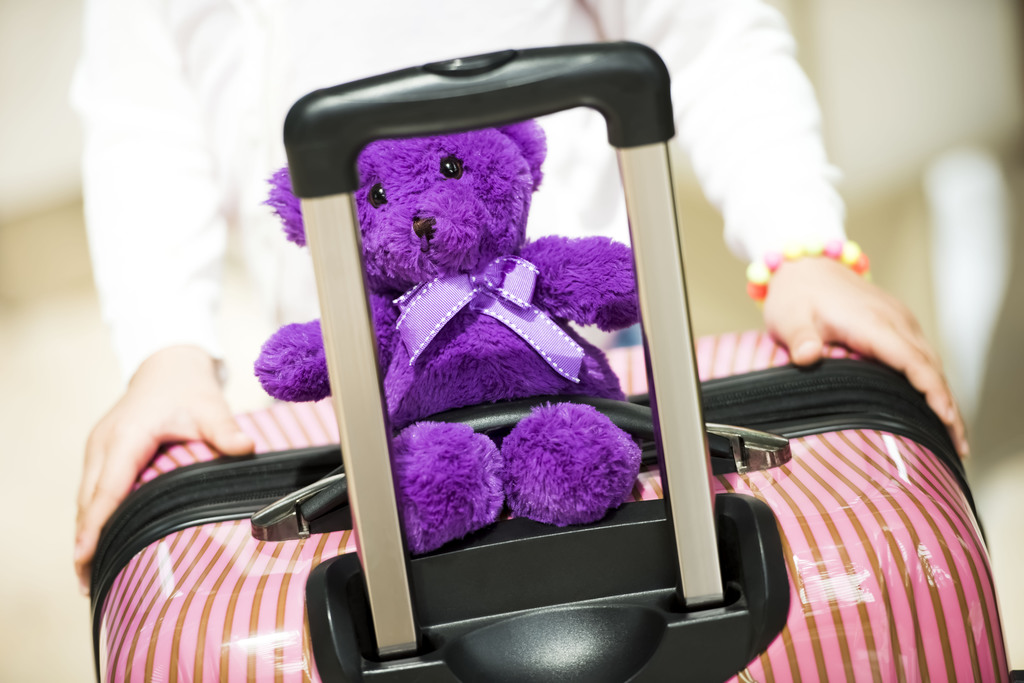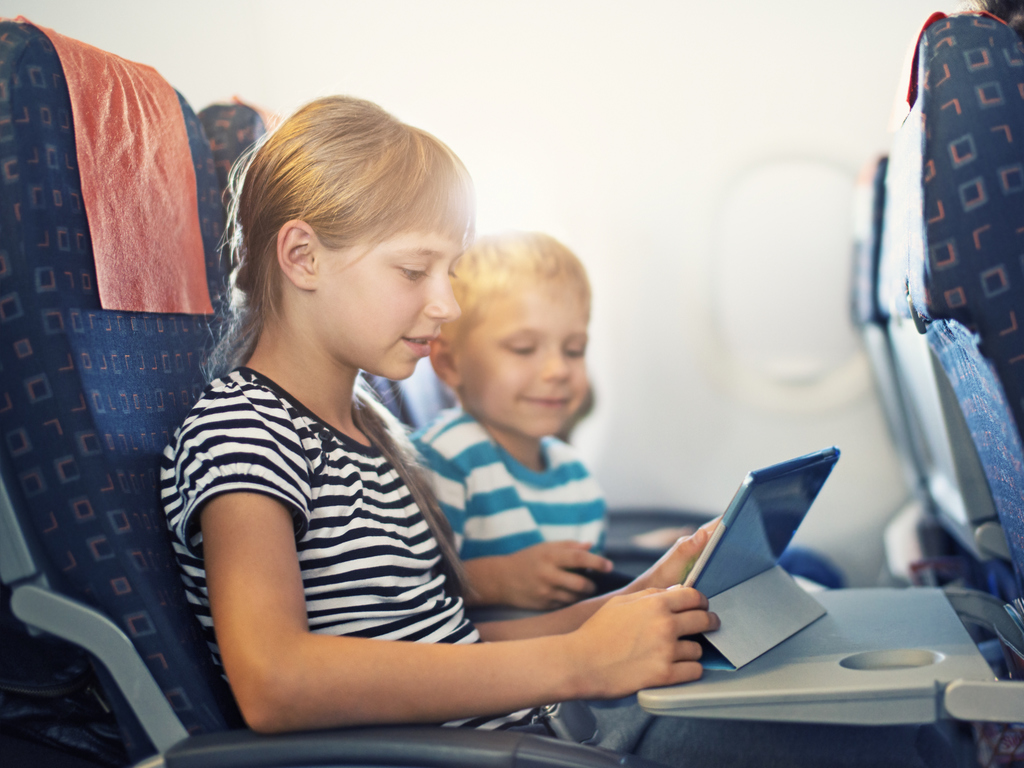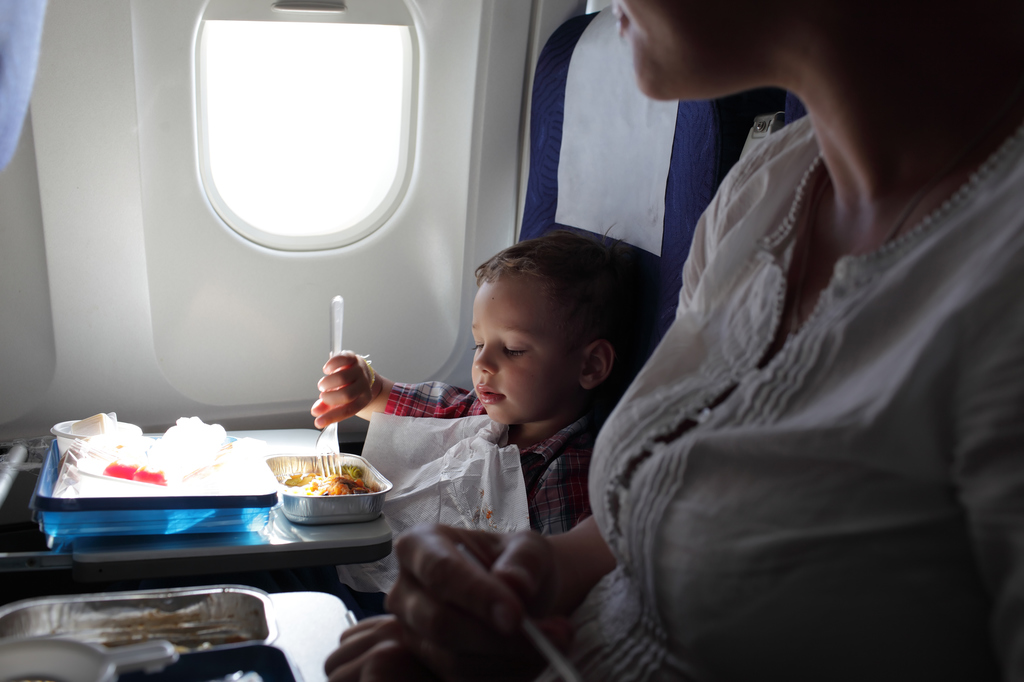SingaporeMotherhood | Baby & Toddler
November 2016
12 Questions You Need to Have Answered Before You Can Survive a Long Haul Flight with Babies & Children
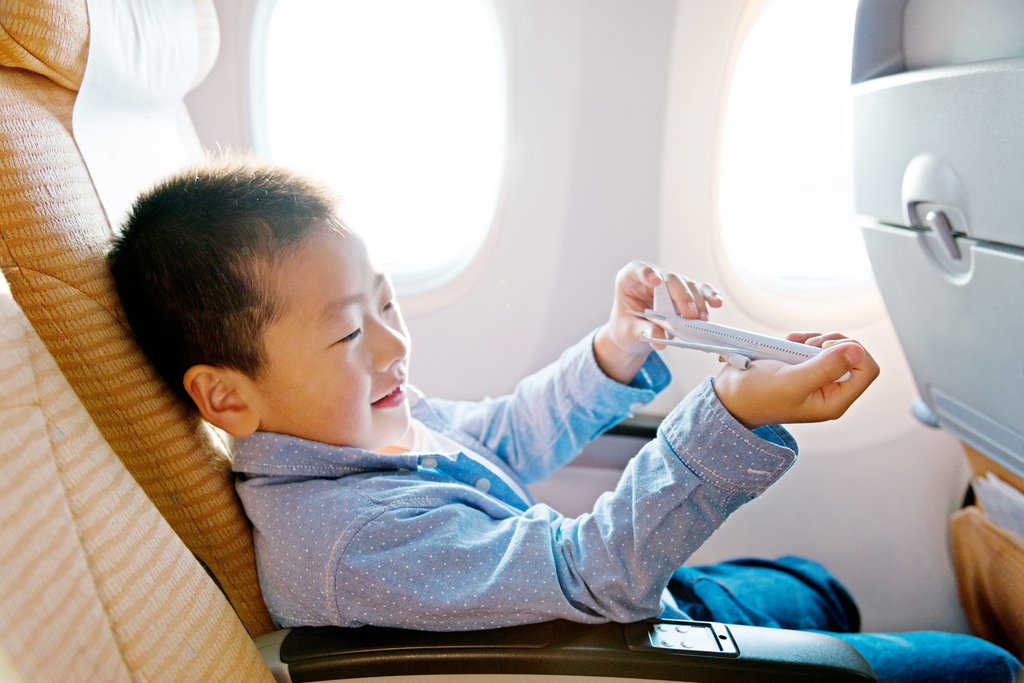
Putting off that exotic holiday because you don’t know how to survive a long haul flight with your children? We speak to a paediatrician to bring you all the must-knows. Parents also share their experiences from having flown long haul with their kids.
[banner][/banner]
School’s out! It’s that time of the year when it’s finally conducive for the little ones in the family to go on a vacation. But have you been watching all your friends plan their getaways with envy instead? What’s stopping you from heading somewhere far-flung to have your own Instagram worthy adventure with your tots? Oh. It’s the thought of having to endure a flight longer than your typical work shift, isn’t it?
Fret not. Flying long haul with the little ones in tow is not all that difficult (believe us) once you have done your research and start preparing ahead! We reckoned it would be best to speak to a paediatrician to lay to rest your concerns about flying long haul with babies and children. Dr Mary Varughese, Associate Consultant at the Division of General Ambulatory Paediatrics and Adolescent Medicine at the National University Hospital, answers 12 questions that are probably on your mind if you are planning on flying long haul with your munchkins!
(See also: 7 Places to See The Northern Lights – Go Now Before They Wane!)
1. Do I need a doctor to certify my newborn or infant fit for air travel?
Most airlines would require a full term baby to be at least two days old before travelling on a plane, although many aerospace health experts would recommend waiting till one to two weeks of age. This is to ensure that your baby is healthy and free of any congenital heart or lung problems that could potentially cause breathing and oxygenation difficulties at high altitudes. A doctor’s letter certifying fitness to travel is not usually required for healthy infants.
However, if your child has a known health problem, a doctor’s letter detailing the medical condition, need for medications and supplies as well as an action plan for potential emergencies would be important to carry with you. And what about new mothers who have just delivered? “Women who have recently given birth either naturally or by Caesarean section are at moderate risk of developing deep vein thrombosis on long haul flights. It is recommended that such travel be postponed until two to four weeks after delivery,” advises Dr Varughese.
(See also: Yes, You Can Travel During Pregnancy!)
2. What’s the best flight timing to book if I am flying with my baby or kids?
“Unfortunately, there is no perfect time to fly,” says Dr Varughese. Nevertheless, try to find a flight that will not upset your baby’s routine too much. Also, non-peak flights may allow you to occupy the whole row of seats, making the journey more comfortable for you and your little one.
(See also: Baby Sleep Secrets – Travelling with Baby)
3. Which seats on the flight should I book if I am travelling with a baby?
A window seat or inner seat of the centre row is preferred for safety reasons. This is to prevent mishaps such as scalds from hot food spillage, head injuries from falling bags stored in the overhead cabins or crushed fingers or arms by in-flight service carts. Furthermore, it is strongly recommended that your baby should be placed in a bassinet while toddlers should be strapped into approved child restraint systems rather than held on your lap. Most serious injuries occur during unexpected in-flight turbulence and a securely fastened baby is one who is protected from being flung.
Some airlines will save you the trouble of having to choose seats when they know that you’re flying with a baby – you will be allocated seats that come with a baby bassinet. Staff Nurse, Fanzaniah Bibi, 29, and Sales Executive, Shahzadi Ibrahim Angullia, 37, flew to London on Qatar Airlines with their then three-month-old son, Noah, earlier this year. A baby bassinet for little Noah was fixed in front of their seats prior to takeoff and the crew even provided him with soft toys to play with!
“The cabin crew were extremely accommodating to all our needs and ensured that our requests were fulfilled promptly. They helped us with washing Noah’s milk bottles, refilling warm water for his feeds and were very friendly towards us and our baby,” recounts mum Fanzaniah.
4. Help! What should I be packing into my baby’s carry-on bag?
Essential items would be sufficient diapers, baby wipes, a diaper changing pad and a tube of barrier cream, a change of clothes for both baby and yourself (in case of emergencies), adequate sterilised milk bottles, powdered formula, sterilised pacifiers, a first aid kit containing a thermometer and a small bottle of paracetamol as well as other medications that your baby may be taking regularly. Packing your baby’s favourite snack, teddy bear, pillow or blanket may provide him with a sense of security on the flight.
Trust us when we advise you to pack more than one of each baby essential. Fanzaniah shares with us an interesting incident onboard her flight from Doha to London. “We dropped Noah’s pacifier and couldn’t find it. I had to sing nursery rhymes on repeat mode to stop him from crying and to put him to sleep. That’s when I realised the importance of packing extra pacifiers!” When they reached Heathrow Airport, she immediately purchased a set of four pacifiers!
5. How can I help my child prevent the uncomfortable ear popping while taking off and landing?
Babies can be offered a milk bottle or pacifier to suck on. “As for older children, try getting them to suck on a sweet, chew, swallow or hold their breath,” suggests Dr Varughese. This helps in equalising ear pressure during ascent and descent.
Discomfort experienced in the ears due to changes in cabin pressure while taking off and landing was one of Fanzaniah and Shahzadi’s major concerns prior to flying with their infant. “I read up on ways to ease the discomfort in my baby’s ears, the essential items to pack on a trip with an infant, as well as the availability of baby products and medical care in our chosen destinations,” explains Fanzaniah who wanted a vacation before her maternity leave ended. She had also brought along a nasal drop prescribed by Noah’s paediatrician to alleviate discomfort in the ears.
6. If my baby refuses to sleep on a long haul flight, how can I keep her entertained?
Your baby does not need much to be entertained. Simple peek-a-boo or pat-a-cake games and rhymes may seem silly but can delight your bub! Don’t forget to pack some baby books and activity toys as well. Finger foods and snacks, when served at appropriate intervals, can also break the monotony of a long haul flight. Remember to offer only one item at a time and reserve some surprise treats to pull out of the bag when desperate!
7. What can I do to console my crying baby onboard a long haul flight?
If you have already ensured that baby is not upset by hunger, a wet diaper or ear discomfort and have exhausted other methods of keeping your baby entertained, then walking around the plane for short periods could provide a change of surroundings and an interesting view that may distract your baby enough to calm him down. But do be careful not to trip over the feet of other passengers. Also, do return to your seat promptly if turbulence is encountered!
Three-month-old Noah cried a couple of times during his long haul flight to London, but he was quickly consoled once he was fed or changed, according to Fanzaniah. The new mother also counts herself lucky to have had fellow passengers who were extremely understanding whenever her son demanded attention by crying.
(See also: Stress-free Travel with Tots)
8. Is it safe to breastfeed my baby on a plane while taking off or landing?
The safest position for your baby to be in during takeoff and landing is in a child safety seat. This however, precludes breastfeeding. If possible, offer a bottle or pacifier instead. Some airlines do allow babies to be restrained on their mother’s lap with a loop belt, in which case, breastfeeding during take-off and landing would be possible if absolutely necessary.
9. When would be the best time for my baby to have a diaper change during a long haul flight?
According to Dr Varughese, there is no ideal time to have a diaper change but generally, changing just before boarding is encouraged to avoid having to change in the tiny airplane lavatory. Do also keep in mind that your baby’s wet diaper is less crucial to change than a soiled one. Applying generous amounts of barrier cream will be helpful in preventing rashes from unavoidable delays in diaper changes.
10. My child wants to pack her own carry-on bag – what should I ensure she packs?
Older kids may want to pack their own backpacks with their favourite snacks, books and toys. This is one time you don’t want them to forget that electronic device with headphones that could potentially provide hours of entertainment for her. A change of clothes is highly essential. If your child is on regular medications, remember to pack them together with emergency medications such as paracetamol, ibuprofen, antiseptic cream and nasal decongestants. Oral rehydration salts are also recommended in the event of a diarrhoea episode.
38-year-old Nancy Lim says that she will never again underestimate the power of a smart device after surviving an 11-hour flight to Istanbul with her son, Nathaniel, 9, earlier in June. “I thought he would sleep through most of the flight since we boarded at 11pm local time. But boy, was I wrong! I guess it was the excitement of heading somewhere so faraway that was keeping him up,” says the single mum who is a financial consultant. “Nat’s fully charged iPad sure came in handy. I think he spent a total of a good three to four hours on it, alternating between games, puzzles and e-books.” And what was mum Nancy doing while her son entertained himself? Catching up on her beauty sleep, of course!
(See also: The Best Must-have Travel Essentials for Kids!)
11. How can I prevent my children from experiencing jet lag after a long haul flight?
One of the ways to prevent jet lag from a long haul flight would be to choose an overnight flight for minimal sleep disruption. When you reach your destination, setting your family’s routine to local time and getting out in the sun helps to regulate the body clock faster. Avoid long afternoon naps and try to delay your child’s bedtime till as late as possible at night to mimic local bedtime.
In the event your child wakes up in the night wanting to play, keep the lights in the room dim and encourage him to return to sleep after a short while. Generally, your children will adjust to their new routines within three to four days. In the meantime, be patient and plan your trip accordingly!
12. I’ve heard of melatonin supplements which help adults recover from jet lag. Are these advisable for kids?
Melatonin is a naturally-occurring hormone produced by the brain and children express higher amounts than adults. Although children may also experience mild symptoms of jet lag such as sleeping difficulties and irritability, they recover quickly with sensible routines and sun exposure. “While melatonin is helpful in the treatment of jet lag in adults, its benefits and side-effect profiles have not been well studied in children,” explains Dr Varughese. So it would be best to stay clear of those till they are grown-ups!
Did mum Nancy ever consider melatonin supplements for her nine-year-old? “I have seen bottles of melatonin on the shelves at Guardian but I had always thought they were only meant for adults, so the thought never crossed my mind. I think it’s best to leave a child’s body clock to readjust naturally instead of turning to supplements. Nat was fine after a good night’s sleep. I wouldn’t want my boy to experience any side effects from melatonin consumption,” explains Nancy.
(See also: Medical FAQs For Travel with Kids)
All content from this article, including images, cannot be reproduced without credits or written permission from SingaporeMotherhood.
Follow us on Facebook, Instagram, and Telegram for the latest article and promotion updates.




